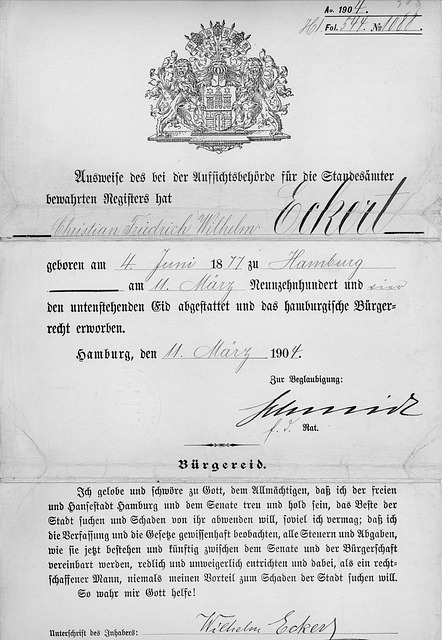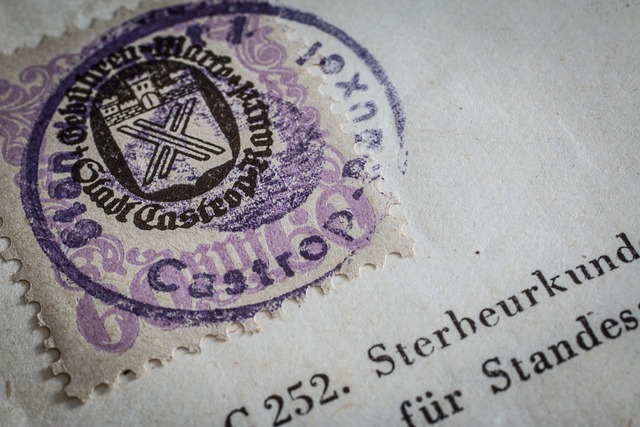The notarised translation services UK are essential for ensuring that all official documents translated from one language to another within the UK are precise, accurate, and legally recognised. These services involve professional translators who are accredited and often affiliated with established bodies such as the Institute of Translation and Interpreting (ITI), Chartered Institute of Linguists (CIOL), or Association of Translation Companies (ATC). A meticulous process follows where the translation is reviewed, the translator's credentials are confirmed by a notary public, and finally, the document receives an official stamp of authenticity. This process is crucial for legal matters, including immigration cases, corporate documents for international businesses, and personal legal proceedings like family law, where precise translations can prevent costly legal complications and ensure that documents are accepted and legally binding in the UK. The demand for these services has grown significantly due to the UK's multilingual nature and its role as a hub for global commerce, making notarised translation services UK an indispensable resource for maintaining clear and compliant communication across linguistic boundaries.
Navigating the complexities of legal documentation across borders can be a daunting task. In the UK, where official papers often require recognition in multiple languages, the importance of professional notarised translation services becomes paramount. This article delves into the essential role these services play, from safeguarding your business dealings to facilitating personal legal matters. We explore the legal status and the meticulous process of notarising translations within the UK’s framework, ensuring your documents hold the necessary weight. From understanding the nuances that distinguish a notarised translation from a standard one to recognizing the critical importance of accuracy in such translations, this guide offers clarity and guidance. It also provides insights into the cost implications, the professional entities involved, and the technological advancements streamlining this vital process. Whether for immigration, business, academic, or personal use, notarised translation services UK are an indispensable tool to navigate the multilingual world effectively.
- Understanding the Necessity of Notarised Translation Services in the UK
- The Role of a Notary Public in Certifying Translations
- Key Differences Between Translation and Notarised Translation
- The Legal Status of Notarised Documents in the UK
- Types of Documents That Require Notarised Translation Services
- How to Choose a Reliable Notarised Translation Service Provider in the UK
- The Process of Notarising Translations in the UK: A Step-by-Step Guide
- The Importance of Accuracy and Cultural Nuances in Official Translations
- The Consequences of Using Unofficial or Inaccurate Translations for Legal Purposes
- Case Studies: Real-Life Examples of Notarised Translation Usage in the UK
Understanding the Necessity of Notarised Translation Services in the UK

In the UK, where legal and official documentation often requires precise and authoritative translations, notarised translation services play a pivotal role. These services ensure that translations are both accurate and legally recognised across various institutions, including government bodies, courts, and corporate entities. The necessity of such services arises from the need to maintain integrity and clarity in official communications that transcend language barriers. For instance, individuals engaged in international trade, immigrants applying for citizenship, or those seeking to legalise academic qualifications must have their documents accurately translated and notarised to comply with UK regulations. Notarised translation services UK are manned by professional translators who are adept at navigating the complexities of language, law, and officialdom. They provide a certificate of authenticity that verifies the identity of the translator, attests to their proficiency in both languages, and confirms the true representation of the original document’s content. This process is crucial for legal documents, academic certificates, and any official paperwork that must be presented to UK authorities, thereby avoiding potential complications due to language discrepancies or misunderstandings.
The Role of a Notary Public in Certifying Translations

When engaging with notarised translation services in the UK, the role of a Notary Public is pivotal in the certification process. A Notary Public is a public officer appointed by the state to certify documents for use in foreign countries. Their primary function in the context of translations is to verify the identity of the translator and ensure that the translation is an accurate representation of the original document. This verification is crucial as it attests to the authenticity and reliability of the translated content, making the document legally binding across international borders. The Notary Public witnesses the signing of a sworn declaration by the translator, affirming under penalty of perjury that the translation is complete and faithful to the source material. This process is indispensable for legal, academic, or business documents that require official recognition in a different country. By opting for notarised translation services UK-based, individuals and organisations can navigate the complexities of international communication with confidence, knowing their translated documents have been professionally and legally validated.
In the UK, the stringent standards for notarised translations ensure that any document bearing a Notary Public’s seal carries significant weight in both domestic and international legal systems. This is particularly relevant for individuals undertaking international adoptions, applying for visas, or those involved in cross-border litigation. The notarisation process, when applied to translations, provides a level of security and trustworthiness that is essential for official purposes. It is here that professional notarised translation services UK-wide excel, offering a seamless integration of linguistic expertise with the official authority of a Notary Public, thus facilitating clear and effective communication in a globalised world.
Key Differences Between Translation and Notarised Translation

In the realm of official documentation, the distinction between a standard translation and a notarised translation is paramount. A professional translation service in the UK adeptly converts text from one language to another, making it understandable in the target language while retaining the original’s meaning. However, this process alone does not satisfy all legal or official requirements. Notarised translation services UK go a step further by verifying the accuracy and completeness of the translated content through a formal notarisation process. This involves a certified professional—known as a notary public—reviewing and authenticating the translation. The notary attests that the document is a true and faithful representation of the original, thereby adding an official stamp of credibility that is often necessary for legal, governmental, or corporate uses. This authentication ensures that the translated text can be accepted without question in different jurisdictions, making notarised translations indispensable for international transactions, immigration procedures, and official certifications where the highest level of verification is required. Choosing reputable notarised translation services UK is crucial for anyone needing to validate documents across borders, as it guarantees compliance with legal standards and facilitates smoother interactions with authorities that demand such certified translations.
The Legal Status of Notarised Documents in the UK

In the United Kingdom, the authenticity and legality of documents are paramount, particularly when they pertain to official matters. Notarised translation services in the UK play a crucial role in this context by ensuring that translated documents carry the same weight as their original counterparts. A notarised translation is one that has been certified by a qualified translator and then authenticated by a notary public, attesting to its accuracy and completeness. This process verifies that the translation reflects the exact content of the original document, which is essential for legal, academic, or corporate purposes. The Notaries Society and the Institute of Translation and Interpreting (ITI) set strict guidelines for these professionals, ensuring high standards of quality and reliability. Once notarised, these translations are accepted by UK government departments, embassies, courts, and other official entities, facilitating international communication and legal compliance.
The legal status of notarised documents in the UK is underpinned by a system that recognises their integrity within both national and international settings. For instance, individuals applying for visas or seeking to legalise documents for use abroad must have them notarised to be recognised by foreign authorities. Similarly, businesses engaging with international partners often require translations of contracts, certificates, and other official documents to be notarised to ensure they are legally binding in their intended jurisdictions. Notarised translation services UK thus bridge the linguistic gap while upholding the legal integrity of documents across borders, a testament to the country’s commitment to maintaining order and transparency in formal transactions.
Types of Documents That Require Notarised Translation Services

When engaging with legal, governmental, or official procedures that transcend linguistic barriers, the necessity for precise and legally recognised translations is paramount. Notarised translation services UK play a critical role in this context, providing accurate interpretations of documents that are to be used across different jurisdictions where English is not the native language. In the UK, legal documents such as contracts, wills, deeds, and powers of attorney require meticulous translations to ensure they maintain their legal validity and enforceability. Notarised translations certify that the translated content is a true and faithful representation of the original, rendering them indispensable for international adoptions, immigration applications, and educational credentials verification. The notary public in the UK attests to the authenticity of both the translation and the translator’s qualifications, which is essential for documents to be accepted by legal entities and government departments, ensuring a seamless process for individuals and organisations operating within a multilingual environment.
How to Choose a Reliable Notarised Translation Service Provider in the UK

When the need arises for official documentation to be translated and notarized in the UK, selecting a reliable service provider is paramount. The accuracy and legality of such translations are critical, as they often serve legal, immigration, or commercial purposes where precision is non-negotiable. To ensure the translation meets all necessary requirements, look for a notarised translation service that holds professional accreditation. This could include membership in the Institute of Translation and Interpreting (ITI) or Association of Translation Companies (ATC), which are indicators of high standards in the industry. Additionally, verify that the translators are certified and have expertise in the specific language pair required for your documents.
Furthermore, a reputable notarised translation service in the UK should provide detailed information about their credentials and processes on their website. They must be authorised to offer notarisation services by the Foreign, Commonwealth & Development Office (FCDO) or relevant authorities, ensuring that the translated documents will be accepted both domestically and internationally. It is also advisable to check for positive reviews and testimonials from past clients to gauge the service provider’s reliability and quality of work. By adhering to these criteria, you can confidently choose a notarised translation service in the UK that will deliver professional, accurate, and legally binding translations for your official purposes.
The Process of Notarising Translations in the UK: A Step-by-Step Guide

In the United Kingdom, when a translation is required for official purposes, it must undergo a meticulous process of notarisation to ensure its authenticity and legal recognition. This process begins with identifying a qualified translator who is proficient in both the source and target languages and holds professional accreditation. The translator must be a member of a relevant professional body, such as the Institute of Translation and Interpreting (ITI), the Chartered Institute of Linguists (CIOL), or the Association of Translation Companies (ATC). Once a certified translator is engaged, they will translate the document with precision, ensuring that every word accurately conveys the original content’s intent.
Upon completion of the translation, the translator will review the translated text to confirm there are no discrepancies or errors. This review is a critical step to maintain the integrity and accuracy of the translation. After satisfying this quality assurance measure, the translator will affix their signature to the document, marking it as a true and faithful translation. The next phase involves approaching a notary public, who is an officer authorised by law to perform notarisation acts. In the UK, a notary public will verify the identity of the person who provided the translation, ascertain that the translator is indeed a qualified professional, and authenticate the document’s translated content. The notary will then notarise the signature of the translator, certifying under their official seal that the translation is accurate to the best of their knowledge. This notarised translation services UK process concludes with the issuance of a certificate of authenticity, rendering the translation officially recognized and acceptable for use in legal, academic, or corporate settings within the UK and internationally.
The Importance of Accuracy and Cultural Nuances in Official Translations

In the realm of legal and official documents, precision is paramount. Notarised translation services in the UK play a critical role in ensuring that translations are accurate and reflective of the source material’s intent. These services are indispensable for individuals and organisations that require documentation to be legally valid across different languages and jurisdictions. The accuracy of a notarised translation is not solely about word-for-word correspondence but also encompasses capturing cultural nuances, colloquialisms, and contextual subtleties. A mistranslation can lead to legal complications, miscommunication, or even the invalidation of documents. Therefore, professional translators who offer notarised translation services in the UK are trained to navigate linguistic intricacies with a deep understanding of cultural contexts, thereby upholding the integrity and validity of official translations. Their expertise ensures that the translated content aligns with the original text’s tone, intent, and meaning, facilitating seamless cross-border transactions, international legal proceedings, and global business operations. This level of proficiency and attention to detail is a cornerstone for maintaining trust in official documents and is a testament to the importance of notarised translation services within the UK legal framework.
The Consequences of Using Unofficial or Inaccurate Translations for Legal Purposes

When legal documents require translation, precision and accuracy are paramount. Unofficial or inaccurate translations can lead to significant consequences, particularly in a legal context where the exact meaning of words carries substantial weight. In the UK, where a multitude of languages are spoken, the reliance on notarised translation services UK is critical for official purposes. These professional services ensure that translations are accurate and reliable, as they are verified by a certified translator and a notary public. A notary’s stamp attests to the authenticity of the document, making it legally binding in the same way as the original. Misinterpretation or errors in translation can result in legal complications, including the invalidation of contracts, delays in legal proceedings, and potentially even legal penalties. In cases where immigration documents are mistranslated, for instance, individuals may face issues with their visa or residency status. Consequently, engaging notarised translation services UK is not merely a matter of formality but a safeguard against costly and time-consuming legal repercussions. It underscores the importance of professional translators who are native speakers or have equivalent language expertise to provide precise translations that stand up to legal scrutiny.
Case Studies: Real-Life Examples of Notarised Translation Usage in the UK

Within the United Kingdom, the necessity for notarised translation services has become increasingly prevalent, particularly in contexts that require official documentation to be understood across linguistic boundaries. A case in point is the scenario of a multinational corporation expanding its operations into the UK. To facilitate seamless communication between its diverse workforce and comply with local regulations, the company required a variety of corporate documents, such as financial statements and employee contracts, to be translated from multiple languages into English and notarised. This ensured the validity of these documents for legal and administrative purposes within the UK.
Another real-life example illustrates the critical role of notarised translation services in personal matters. A UK resident with heritage in Italy needed to authenticate her birth certificate and marriage certificate for family law proceedings. The accurate translation of these vital records, coupled with the notarisation process, verified her identity and marital status before the British legal system, without which the proceedings would have been stalled due to the lack of officially recognised documents. These instances underscore the indispensable nature of notarised translation services UK in bridging language barriers and upholding the integrity of official documentation.
When engaging with official matters, particularly within the UK, the necessity of professional notarised translation services cannot be overstated. These services are integral for ensuring that translations meet the stringent legal standards required to validate documents across different jurisdictions. A certified notary public plays a pivotal role in this process, affixing their seal and signature to attest to the accuracy and authenticity of the translated content. This article has delved into the intricacies of notarised translation services UK, highlighting the legal recognition of these documents, the types of documents that necessitate such verification, and the importance of selecting a trustworthy service provider. By adhering to the detailed step-by-step process outlined, individuals and organisations can navigate the complexities of official translations with confidence, avoiding the pitfalls associated with unofficial or inaccurate renditions. The case studies presented underscore the practical significance of these services in real-life scenarios. In conclusion, for any legal, official, or administrative purpose that requires documentation to be understood beyond linguistic barriers, utilising notarised translation services UK is not just a wise choice—it’s an indispensable requirement for ensuring legal admissibility and integrity.
